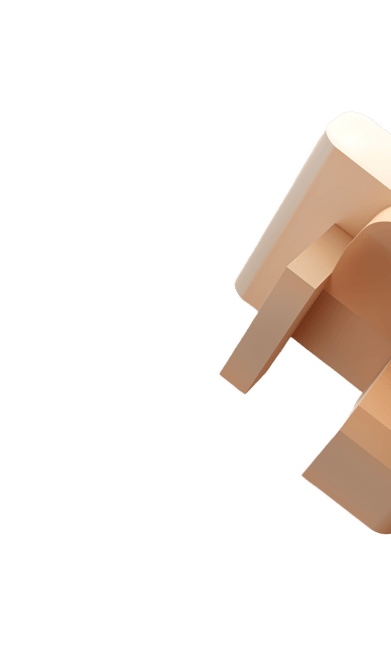House surveys
House surveys can be confusing. Find out what property surveys, how much they are and who's involved.
In this guide:
What is a house survey?
A house survey is an inspection of a property's condition and is carried out by a qualified surveyor from The Royal Institute of Chartered Surveyors (RICS).
Home buyers tend to have a more detailed house survey done after their offer has been accepted for a property.
Depending on which survey you get, it can let you know if there are potential structural problems in the home you want to buy.
These problems could be:
unstable walls
a roof in need of repairs
subsidence
damp
Unlike a mortgage valuation, a survey is carried out for the buyer’s benefit, as it’ll tell you about any potential issues with the property’s structure.
If you live in England, Wales, or Northern Ireland, you do not have to get a survey done, but it Is highly recommended.
A survey alerts you to any issues that might end up being expensive to fix; such as rewiring.
It’s a good way to reassure you and help you better understand any faults or potential issues with your prospective new home.
If you do decide to get a survey done, it’s up to you to set one up and find a qualified surveyor.
If you’re buying a house in Scotland, it’s a legal requirement that sellers provide a complete report ready for the prospective buyer before they even put their home on the market.
What does a house survey include?
There are different types of surveys, and each looks for different things.
A level 1 survey (Conditions Report) will look at the overall condition of the property and highlight any major issues. It will not go into detail about the condition of the property, so for a more thorough survey, you should opt for a level 2 or 3 survey.
Find out more about the various types of surveys below.
What types of house surveys are there?
RICS offers 3 types of survey:
RICS Condition Report (survey level 1)
RICS Homebuyer Report (survey level 2)
RICS Building Survey (survey level 3)
The Royal Institute of Chartered Surveyors (RICS) is a recognised professional body.
They enforce qualifications and standards for land, property, infrastructure and construction.¹
Most qualified surveyors are members of RICS.
It’s a good idea to use a RICS-qualified surveyor as they’ll have professional indemnity insurance, which protects you from the cost of fixing issues that come up from the survey.
Some surveyors might be members of the Residential Property Surveyors Association (RPSA) instead. RPSA surveyors offer similar surveys to RICS surveyors.
The RICS Condition Report is the most basic, and therefore cheapest, survey.
It describes the condition of the property by looking out for any risks and potential legal issues, as well as highlighting anything urgent that needs to be addressed.
A Condition Report is for newer homes and standard properties in a good condition.
A RICS condition report includes:
Traffic light ratings to show the condition of key parts of the property like the roof, windows and plumbing
Will highlight any legal issues that will need addressing before purchase
Gives you information on the location, local environment and energy efficiency
This is a mid-level survey and is a popular choice for anyone buying a home in reasonable condition.
A RICS Level 2 report includes everything covered in a Level 1 report plus:
looks at cellars and/or roof spaces
details on structural issues like damp or subsidence
advice from the surveyor on repairs, ongoing maintenance and what this could cost
a market valuation (if you get a survey and a valuation)
insurance rebuild costs (if you get a survey and a valuation)
Although this survey is more detailed than a Level 1 survey, it is still non-intrusive. This means that the surveyor will not inspect behind furniture or beneath floors and only surface-level issues will be identified.
The most thorough of the 3 surveys, this one gives a more in-depth analysis of the property you are looking to buy.
A RICS Level 3 report includes everything covered in a Level 1 and 2 reports plus:
a full structural survey and detailed report
checks in the attic, behind walls, below floorboards, and above ceilings
advice on repairs
estimates of the costs, timings and how to prioritise repairs
predictions of what’ll happen if you do not make certain repairs
Level 3 surveys can also include the following, upon request:
market valuation
insurance rebuild costs
in-depth testing of electricity or gas
What type of home is it suitable for
As it is the most detailed and expensive survey, you may want to consider if it’s the right one for you and the home you are looking to buy.
You should get a Level 3 survey if:
the property is more than 50 years old
the property is unusual in its design
the property is in poor condition or disrepair
you are planning to do any big renovations to the property
you have concerns about the property
How much is a house survey?
The cost of your survey depends on the:
location of the property
size of the property
type of survey
surveyor you use
Prices you might pay for each type of survey:³
RICS Condition Report: £300+
RICS Homebuyer Report (survey only): £350+
RICS Homebuyer Report (survey and valuation): £450+
RICS Building Survey: £500+
You should base your decision on which type of survey you need and the type of property you’re buying. Not the cost of the survey.
How long does a house survey take?
How long a survey takes will differ based on a few factors. While some buyers may only wait a few days, it could take weeks for others to get their surveys done and the results back.
How long your survey takes will depend on:
The surveyor’s availability to carry out the survey
The seller’s availability to have the property looked at
The time it takes to carry out the survey (this will further vary based on which type of survey you choose)
Level 1 survey - 1 hour or less
Level 2 survey - 90 minutes to 4 hours
Level 3 survey - Up to 8 hours
The time it takes for the surveyor to write up their report (which can vary depending on how in-depth the report is and the findings from the survey)
Who organises a survey when buying a house?
It's up to you to get a survey when you buy a house.
It’s usually done after you've had your offer accepted on a property. Unless you're buying a property at an auction.
In this situation, we recommend getting a survey done before the auction date.
Once you have a surveyor they'll:
arrange a time to visit the property with the seller or estate agent
get the sales information and property's Energy Performance Certificate from the estate agent
use the floor plan to note down any faults in different parts of the building
If you'd like to be there when the survey is being done, ask your surveyor.
What happens after a survey on a house?
After a survey, the surveyor will create a report that details the condition of the property.
How long it takes to get the report depends on the surveyor and the type of survey. It’s usually within 10 days.
Some surveyors will call you after a survey with a quick summary of any findings.
If there’s anything in the report you do not understand, you can ask the surveyor to explain.
If the survey finds any issues, you may want to:
get an expert to quote for work that needs doing
renegotiate the price with the seller
drop out of the purchase
How to negotiate a house price after a survey
So, you’ve had your offer accepted but after receiving the results of your survey have found issues you were unaware of, this could leave room for renegotiation.
You are well within your rights to rethink and lower your offer to cover the cost of fixing any serious issues found during the survey process.
You can either:
Ask the seller to accept a lower offer
Ask the seller to fix the defects before continuing with the purchase at the agreed price
It’s a good idea to ask a contractor to have a look at the property to provide an estimated cost for the repairs that need to be made.
If you show these estimates to the seller or estate agent, they may be more likely to agree to a lower price.
You should then speak to the seller and/or estate agent and explain the results of your survey and what costs will be incurred to fix the issues found.
Do you need a survey on a new build?
If you're buying a new build home, you'll need a new build snagging survey. Not a RICS survey.
This type of survey finds problems with new builds. For example, structural and smaller cosmetic issues.
You can use the snagging survey to ask the developer to sort out any issues with your new build.
It's best to get a snagging survey done before you exchange contracts with the developer. Some developers will not let you get a snagging inspection until completion.
How to find a surveyor
It’s up to you to find a surveyor to conduct a survey of the property you plan on buying.
Much like when looking for a mortgage, you can use comparison websites to help you find the right surveyor.
When looking for a surveyor ensure:
they are a qualified chartered surveyor regulated by RICS
they are experienced and equipped with in-depth knowledge
that you can afford their fees and aware of any hidden fees
you have looked up the surveyor’s reviews
they are familiar with the local area you are looking to buy in
Get a mortgage with Better.co.uk today
Better.co.uk is a fee-free mortgage broker
4.8-star Trustpilot rating from over 9,000 reviews
Compare mortgage deals from over 100 lenders
Get matched with the right legal team with SmartBuyer
Fund a big expense with a Homeowner Loan
What people are saying about Better.co.uk...

Important info & marketing claims
You may have to pay an early repayment charge to your existing lender if you remortgage. Your savings will depend on personal circumstances.
Your home may be repossessed if you do not keep up repayments on your mortgage.
*89% of customers will be better off using Better.co.uk rather than going direct with their lender. Read more on our marketing claims page.
We can't always guarantee we will be able to help you with your mortgage application depending on your credit history and circumstances.
Average mortgage decision and approval times are based on Better.co.uk's historic data for lenders we submit applications to.
Tracker rates are identified after comparing over 12,000 mortgage products from over 100 mortgage lenders.
As of January 2023, Better.co.uk has access to over 100 lenders. This number is subject to change.
For buy-to-let landlords, there's no guarantee that it will be possible to arrange continuous letting of a property, nor that rental income will be sufficient to meet the cost of the mortgage.

